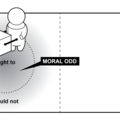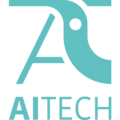News
29 september 2022
Drivers of partially automated vehicles are blamed for crashes that they cannot reasonably avoid
The concept of meaningful human control has been proposed to address responsibility gaps that arise with the use of AI. However, translating this concept into a concrete design and engineering practice is far from trivial. In their paper, "Meaningful human control: actionable properties for AI system development", researchers of the AiTech interdisciplinary program address the gap between philosophical theory and design & engineering practice by identifying four actionable properties for human-AI systems under meaningful human control.
18 mei 2022
AiTech paper on Meaningful Human Control published in AI and Ethics

The concept of meaningful human control has been proposed to address responsibility gaps that arise with the use of AI. However, translating this concept into a concrete design and engineering practice is far from trivial. In their paper, "Meaningful human control: actionable properties for AI system development", researchers of the AiTech interdisciplinary program address the gap between philosophical theory and design & engineering practice by identifying four actionable properties for human-AI systems under meaningful human control.
24 augustus 2020
AiTech paper "Designing for Human Rights in AI" published in Big Data & Society

AI systems can help us make evidence-driven, efficient decisions, but can also confront us with unjustified, discriminatory decisions wrongly assumed to be accurate because they are made automatically and quantitatively. It is becoming evident that these technological developments are consequential to people's fundamental human rights, impacting core values such as human dignity, freedom, equality, and solidarity. In their paper, AiTech's Evgeni Aizenberg and Jeroen van den Hoven bridge socio-technical gaps in addressing these challenges through the framework of Design for Values, presenting a roadmap for proactively engaging societal stakeholders to translate fundamental human rights into context-dependent design choices through a structured, inclusive, and transparent process.
25 juni 2020
Empowering job seekers with effective self-representation

A significant portion of academic graduates have difficulty finding a first job after graduation. On the one hand, job seekers are often not able to communicate their skills and abilities in a convincing manner. On the other hand, employers are often not able to communicate the job requirements effectively. In his MSc graduation project, Jeroen ter Haar Romenij (faculty of Industrial Design Engineering) designed a job searching platform that allows job seekers to explore vacancies based on job tasks. This enables them and employers to express their preferences in a uniform language, thereby reducing the communication gap and facilitating better matches.
24 juni 2020
Interview David Abbink for the H2020 project "Interactive Robots for a Better Society"

AiTech’s core team member David Abbink shares his vision on why and how we should design the robots to interact with us in a world that is complex, dynamic, unpredictable and emergent for the H2020 project "Interactive Robots for a Better Society" (INBOTS).
26 mei 2020
AiTech paper "Improving Confidence in the Estimation of Values and Norms" presented at the COINE Workshop @AAMAS 2020

AiTech’s postdoc Luciano Cavalcante Siebert presented the paper entitled “Improving Confidence in the Estimation of Values and Norms” on May 9 in the International Workshop on Coordination, Organizations, Institutions, Norms and Ethics for Governance of Multi-Agent Systems (COINE), co-located with AAMAS 2020. Amid the COVID-19 pandemic, the COINE workshop happened in a new hybrid format: video presentations were previously uploaded and the discussions happened via online meetings.
13 mei 2020
Designing for Human Rights in AI, pre-print released

AiTech’s Evgeni Aizenberg and Jeroen van den Hoven released a pre-print of their paper on Designing for Human Rights in AI. In this work, they bridge socio-technical gaps through the framework of Design for Values, drawing on methodologies of Value Sensitive Design and Participatory Design to present a roadmap for proactively engaging societal stakeholders to translate fundamental human rights into context-dependent design requirements through a structured, inclusive, and transparent process.
03 december 2019
First national research agenda for Artificial Intelligence
On November 14, our scientific director Inald Lagendijk together with Natali Helberger and Maarten de Rijke presented the "first national research agenda for Artificial Intelligence to NWO's president Stan Gielen. More information can be found through the link below. https://www.nwo.nl/en/news-and-events/news/2019/11/first-national-research-agenda-for-artificial-intelligence.html
29 november 2019
Congress on transparent algorithms for better policy
AiTech's Prof. Jeroen van den Hoven (TPM) chaired the congress on transparent algorithms for better policy at ScienceWorks on November 28, 2019. Dr. Aimee van Wynsberghe, TU Delft, was also part of the closing panel. More information can be found through the link below. https://scienceworks.nl/presentaties_data-beleidcongres/
31 oktober 2019
1st AiTech Symposium - an impression

On September 26, 2019, we organized our first AiTech symposium in which our team and invited speakers presented multidisciplinary perspectives on the theme of meaningful human control over autonomous intelligent systems.